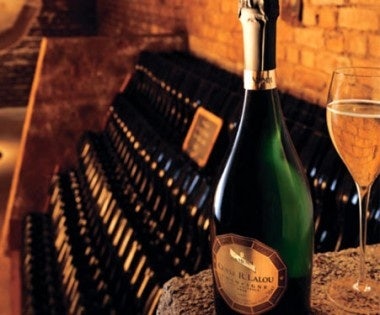G.H Mumm Is World's Third-Largest Champagne House With Annual Sales Of Nearly 8 Million Bottles#

The rapid ascendancy of Hong Kong as one of the world's main wine auction hubs -- and China's ever-increasing thirst for expensive imported wine and spirits that connote the good life -- has been a godsend for major champagne houses. Though champagne and sparkling wine consumption lags far behind that of red wine in the China market -- mainly because buyers and drinkers remain overwhelmingly male -- producers of white wines and champagne have said they expect to see diversification away from Bordeaux in coming years as more Chinese women become "wine converts."
Recently, G.H. Mumm, the world's third-largest champagne house, showed its commitment to bubbly evangelism by introducing one of its most best bottles, the 1998 Cuvee R. Lalou, to the Hong Kong market. Named in honor of G.H. Mumm's president, Rene Lalou -- who, as WineBuzz points out, was credited for producing one of the top 20 vintages of all time, the 1985 vintage which brought fame and prestige to G.H. Mumm -- the Hong Kong launch of the $160-a-bottle 1998 Cuvee R.Lalou was attended by Chef de Cave Didier Mariotti.
Earlier this year, another champagne hopeful with designs on the China market, launched “Gold Luxor Brut” in Hong Kong with the presumed intent of catering to the champagne lover who also enjoys consuming bits of gold leaf. And more recently, Pierre-Emmanuel Taittinger, the chief executive of Taittinger, said, “China is the new United States. It’s why we have to promote champagne in China — to make them happy and peaceful. They are going to lead the world for the next 200 years.”
Clearly, the "wine fever" sweeping Hong Kong and mainland China is a welcome development in the wine industry, which is still recovering in more established markets. However, the country's low wine education rates and highly segmented nature means it's no cakewalk.
Now these wineries and champagne houses -- which scored among the lowest in L2's recent "Digital IQ Index" -- need to focus more on educating consumers, weaning potential drinkers off of their French Bordeaux, and actively reaching target Chinese customers digitally. (Particularly women, who aren't as stubbornly tied to Lafite as Chinese men.)